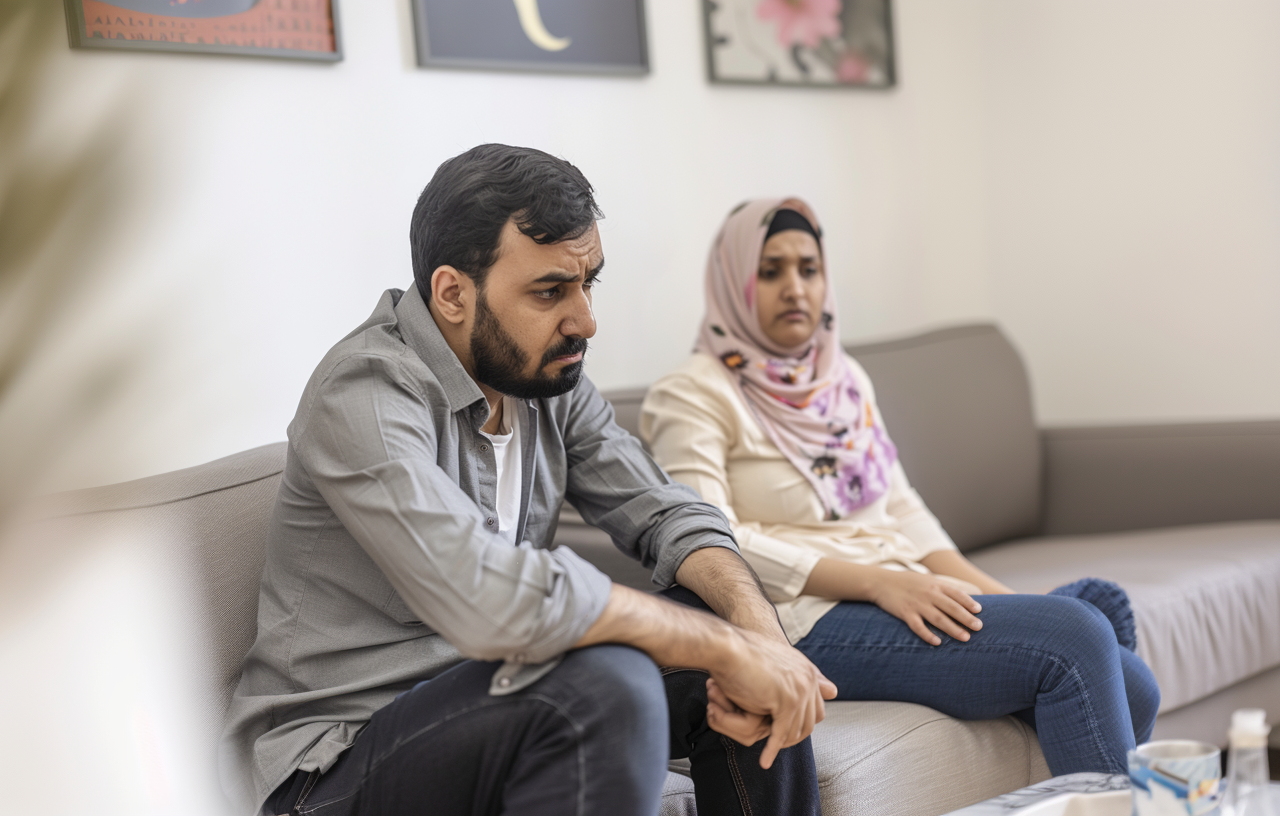Marriage is a beautiful journey, but rough patches are inevitable. Understanding the causes and implementing effective strategies can help navigate and overcome these challenges.
Strategies to Overcome Negative Cycles in Marriage

Marriage is a beautiful and rewarding journey, but it’s not without its challenges. Rough patches are inevitable, and understanding the causes and implementing strategies to overcome them can strengthen the bond between partners. Let’s explore some common causes of marital discord and practical solutions to navigate and resolve these issues.
Identifying Negative Cycles
Negative cycles of distance, passive aggression, and resentment often arise from unexpressed feelings and bottled-up emotions. Recognising these patterns is the first step to breaking them. Often, couples find themselves in a downward spiral because they are not communicating effectively. Feelings are left unspoken, leading to misunderstandings and growing resentment.
To address this, it’s essential to have open and honest conversations with your partner. Discuss the importance of expressing feelings and make a conscious effort to identify specific issues causing tension. By acknowledging and addressing these problems, couples can prevent them from escalating into larger conflicts.
Personal Challenges Affecting Relationships
While we are part of a marriage, we are also individuals with our own feelings and challenges. Personal mental and emotional health issues can significantly impact how we treat our partners. For instance, when we are dealing with stress or anxiety, we may become more irritable and prone to making negative comments or overreacting to relatively minor issues.
It’s crucial to recognise and address our own challenges. Engage in self-care practices to maintain your mental and emotional well-being. If personal issues persist and negatively affect your marriage, seeking therapy or counselling can be beneficial. By taking care of ourselves, we can better support and nurture our relationship with our partner.
The Impact of Hassad (Envy)
Hassad, or envy, can also contribute to marital discord. It’s not uncommon for couples to experience arguments after public gatherings or significant life milestones. Sharing personal achievements and moments on social media can expose us to the envy of others, and if we are not spiritually fortified, we become susceptible to its negative effects.
To mitigate the impact of Hassad, be mindful of what you share on social media. Limit sharing intimate details of your life and focus on strengthening your spiritual state through prayers and recitations. By being cautious and spiritually aware, you can protect your marriage from external negative energies.
Importance of Meaningful Communication
In our busy lives, especially with children, finding time for meaningful communication with our partners can be challenging. Many of us opt to numb the day out by watching TV shows or films in the evening. While this can be a shared activity, it doesn’t count as quality time.
Make it a priority to dedicate time, even once a week, to communicate without devices. Ask your partner how they are doing and what challenges they are experiencing internally. This time fosters understanding, empathy, and love. Meaningful communication is key to maintaining a strong and healthy relationship.
Expressing and Managing Feelings
Expressing feelings can be particularly challenging for men, who often tend to bottle up their emotions. There should be a process to qualify which feelings are worthy of being expressed and which are not. Some disagreements in a marriage can be compared to hitting your elbow’s funny-bone: it hurts a lot in the moment but passes quickly.
A helpful technique is to ask yourself, “Will this matter in 1 day, 1 week, 1 month, 1 year, or 10 years?” This allows you to contextualise a disagreement in the bigger picture. Additionally, writing down your feelings or recording a voice memo can help manage emotions without escalating conflicts. By expressing and managing feelings effectively, couples can prevent small issues from becoming significant problems.
Framing Feelings in Objective Reality
It’s important to move away from the modern psychology idea of ‘this is my truth’ and try to frame feelings in objective reality as much as possible. While we have the right to feel how we feel, not all feelings require validation from others. We cannot expect others to validate every single feeling, as this is not always reasonable.
Communicate significant feelings responsibly, in a conducive time and place. If this doesn’t seem viable, consider seeking marriage counselling. A good counsellor provides a safe space for both partners to express themselves, feel heard, and navigate their challenges together. Counselling can be a valuable tool in resolving conflicts and improving communication.
Reducing Social Media Exposure
To reduce the impact of external energies that can interfere with our relationships, couples should limit sharing their personal lives and moments of happiness on social media. While some milestones may warrant sharing with family and friends, it’s essential to consider whether it’s worth risking your happiness being compromised by someone’s accidental Hassad.
Reflect on the potential consequences before posting personal details online. Focus on enjoying private moments without the need for public validation. By being cautious with social media exposure, couples can protect their relationship from envy and negative external influences.
Taking the First Step
When you realise you’re entering a negative cycle, take the first step to change the energy. It only takes one person to switch the dynamic. A simple ‘I love you,’ an apology, or a warm embrace can make a significant difference. Be proactive in addressing issues and make small gestures to improve your relationship. It takes courage and effort, but initiating positive changes can strengthen the bond and create a more loving and supportive environment.
Conclusion
Navigating rough patches in marriage requires understanding, effort, and effective communication. By addressing personal challenges, managing feelings, and reducing external negative influences, couples can overcome these difficulties and build a stronger, more resilient relationship. Remember, it only takes one person to initiate positive change. Take the first step and watch your marriage flourish.
